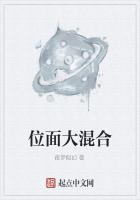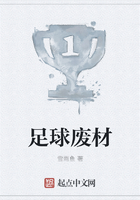Dr.Aubertin received one day a note from a publishing bookseller, to inquire whether he still thought of giving the world his valuable work on insects.The doctor was amazed."My valuable work! Why, Rose, they all refused it, and this person in particular recoiled from it as if my insects could sting on paper."The above led to a correspondence, in which the convert to insects explained that the work must be published at the author's expense, the publisher contenting himself with the profits.The author, thirsting for the public, consented.Then the publisher wrote again to say that the immortal treatise must be spiced; a little politics flung in: "Nothing goes down, else." The author answered in some heat that he would not dilute things everlasting with the fleeting topics of the day, nor defile science with politics.On this his Mentor smoothed him down, despising him secretly for not seeing that a book is a matter of trade and nothing else.It ended in Aubertin going to Paris to hatch his Phoenix.He had not been there a week, when a small deputation called on him, and informed him he had been elected honorary member of a certain scientific society.The compliment was followed by others, till at last certain ladies, with the pliancy of their ***, find out they had always secretly cared for butterflies.Then the naturalist smelt a rat, or, in other words, began to scent that entomology, a form of idiocy in a poor man, is a graceful decoration of the intellect in a rich one.
Philosopher without bile, he saw through this, and let it amuse, not shock him.His own species, a singularly interesting one in my opinion, had another trait in reserve for him.
He took a world of trouble to find out the circumstances of his nephew's nephews and nieces: then he made arrangements for distributing a large part of his legacy among them.His intentions and the proportions of his generosity transpired.
Hitherto they had been silent, but now they all fell-to and abused him: each looking only to the amount of his individual share, not at the sum total the doctor was giving way to an ungrateful lot.
The donor was greatly amused, and noted down the incident and some of the remarks in his commonplace book, under the general head of "Bestiarium;" and the particular head of "Homo."Paris with its seductions netted the good doctor, and held him two or three months; would have detained him longer, but for alarming accounts the baroness sent of Josephine's health.These determined him to return to Beaurepaire; and, must I own it, the announcement was no longer hailed at Beaurepaire with universal joy as heretofore.
Josephine Raynal, late Dujardin, is by this time no stranger to my intelligent reader.I wish him to bring his knowledge of her character and her sensibility to my aid.Imagine, as the weary hours and days and weeks roll over her head, what this loving woman feels for her lover whom she has dismissed; what this grateful wife feels for the benefactor she has unwittingly wronged; but will never wrong with her eyes open; what this lady pure as snow, and proud as fire, feels at the seeming frailty into which a cruel combination of circumstances has entrapped her.
Put down the book a moment: shut your eyes: and imagine this strange and complicated form of human suffering.
Her mental sufferings were terrible; and for some time Rose feared for her reason.At last her agonies subsided into a listlessness and apathy little less alarming.She seemed a creature descending inch by inch into the tomb.Indeed, I fully believe she would have died of despair: but one of nature's greatest forces stepped into the arena and fought on the side of life.She was affected with certain bilious symptoms that added to Rose's uneasiness, but Jacintha assured her it was nothing, and would retire and leave the sufferer better.Jacintha, indeed, seemed now to take a particular interest in Josephine, and was always about her with looks of pity and interest.
"Good creature!" thought Rose, "she sees my sister is unhappy: and that makes her more attentive and devoted to her than ever."One day these three were together in Josephine's room.Josephine was mechanically combing her long hair, when all of a sudden she stretched out her hand and cried, "Rose!"Rose ran to her, and coming behind her saw in the glass that her lips were colorless.She screamed to Jacintha, and between them they supported Josephine to the bed.She had hardly touched it when she fainted dead away."Mamma! mamma!" cried Rose in her terror.
"Hush!" cried Jacintha roughly, "hold your tongue: it is only a faint.Help me loosen her: don't make any noise, whatever." They loosened her stays, and applied the usual remedies, but it was some time before she came-to.At last the color came back to her lips, then to her cheek, and the light to her eye.She smiled feebly on Jacintha and Rose, and asked if she had not been insensible.
"Yes, love, and frightened us--a little--not much--oh, dear! oh, dear!""Don't be alarmed, sweet one, I am better.And I will never do it again, since it frightens you." Then Josephine said to her sister in a low voice, and in the Italian language, "I hoped it was death, my sister; but he comes not to the wretched.""If you hoped that," replied Rose in the same language, "you do not love your poor sister who so loves you."While the Italian was going on, Jacintha's dark eyes glanced suspiciously on each speaker in turn.But her suspicions were all wide of the mark.
"Now may I go and tell mamma?" asked Rose.
"No, mademoiselle, you shall not," said Jacintha."Madame Raynal, do take my side, and forbid her.""Why, what is it to you?" said Rose, haughtily.
"If it was not something to me, should I thwart my dear young lady?""No.And you shall have your own way, if you will but condescend to give me a reason."This to some of us might appear reasonable, but not to Jacintha: it even hurt her feelings.













